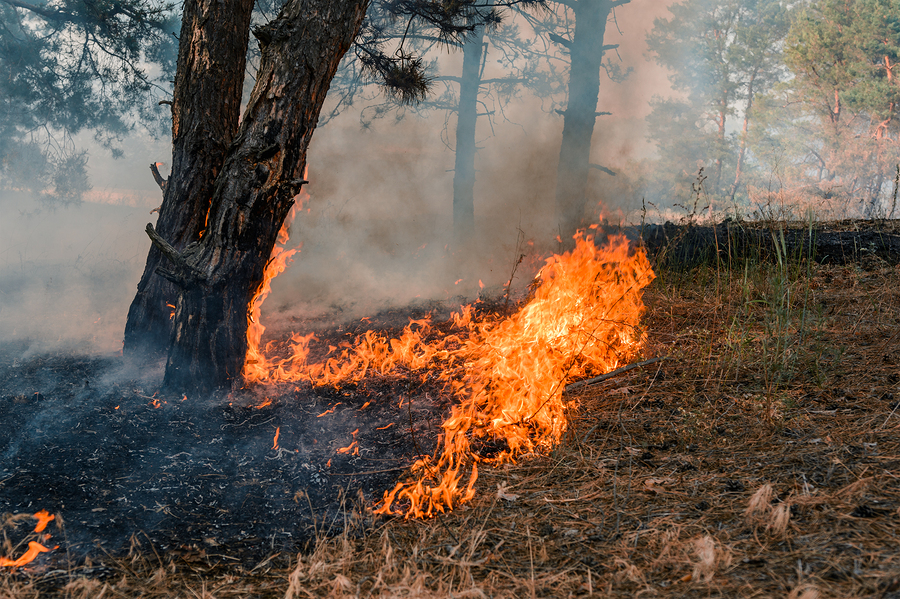With the recent fires in California, we thought taking a few moments to review some tips on emergency preparedness would be helpful. With the possibility of another California wildfire in the future, now is the time to either establish or reevaluate your disaster plans in case of long lasting emergency.
Review your risk management program.
Do you have adequate fire and flood insurance? Do you need earthquake insurance? It is important to review and familiarize yourself with your policies. If you have improved or remodeled your home, it is important that your insurance policy covers the increased value of the home. This is often forgotten and can be detrimental after a disaster.
Have a plan and practice it.
Have a written plan of what to do during an emergency and practice the plan with your family, including children. Pick at least two places to meet; one near your home and another outside of your neighborhood, if you can’t get home. Families should carry a card with addresses and phone numbers of the designated meeting places and, of course, have phone numbers for all family members in their cell phone contacts list. Designate a family member or friend outside of your immediate area to be your family’s central contact person. Review and update your disaster plan, at least annually. Secure a hand/solar charging device for your cell phones and keep it handy. Most importantly, discuss what you would do if you had to be out of your home in 30 minutes, or 2 hours or 1 day so that you know what to prioritize.
Prepare a Survival Kit.
Prepare your survival kit in a container that is water and rodent proof (e.g. plastic trash can with lid). You should have a minimum of three days of food and water for each person in your household. Make sure to replace any items before they expire. Have a smaller version of your survival kit in your car. Inquire about emergency kits at your workplace and children’s school. Have the right size and kind of fire extinguishers in your home, garage and office. Test them annually. Be sure to include a supply of prescription medicines and health aides for particular family members.
Have a plan for your pets.
The San Diego Humane Society is one resource for animal disaster planning; you can also ask your pet’s veterinarian for suggestions. Have your pet fitted with a microchip that contains your contact information. Many animals get lost during emergencies; microchipping increases the chance you will be reunited with your pet. Emergency shelters generally do not accept pets. If you absolutely must leave your animal behind, do not tie it up and make sure to leave out food and water in non-skid bowls. Leave a note on your door with the number, types, and names of animals left in your home, and your contact information so the firefighters know where to go first.
Don’t forget your important documents.
Have a waterproof and fireproof box that contains your financial documents that you can easily grab on your way out the door. This box should also contain a USB flash drive of your computer documents. (Which we know you back up regularly, including your photos of your home!) At CCMI, we save our clients’ documents in secure online vaults through our server which is backed up offsite. Be sure to keep some cash in a safe place in your home; without electricity, ATM machines don’t work and merchants who are still operating after a disaster can’t process credit card transactions—just cash!
Prepare your vehicle.
Try not to let your vehicle’s fuel level fall below the halfway point. As many learn during power outages fuel may be unavailable during an emergency. Take care of any car problems before they arise, so you won’t be stranded on the road.
Pay attention to emergency broadcasts and directions from safety personnel.
Have a battery powered radio to stay tuned to emergency broadcasts; do not try to drive through a flooded area or risk being stranded in rising water. In a fire, evacuate your home or business when emergency personnel order you to do so. Be sure to take your “grab and go” bag(s) with you and attempt to stay in touch with family members and friends, using the communication plan you have established and practiced.
The CCMI Team wants you to be safe in the event of an emergency. For a list of resources through which to purchase survival kits to have on hand in the event of an emergency, please click here. Excellent and specific information on what to do in different types of disasters can be found at www.disastersafety.org.
CCMI provides personalized fee-only financial planning and investment management services to business owners, professionals, individuals and families in San Diego and throughout the country. CCMI has a team of CERTIFIED FINANCIAL PLANNERTM professionals who act as fiduciaries, which means our clients’ interests always come first.
How can we help you?






